Are you tired of using cookware that may be endangering your health? In this article, you will discover simple strategies to transition to healthier cookware choices. By making a few changes in your kitchen, you can ensure that you and your loved ones are cooking and eating in a safer and healthier environment. From choosing non-toxic materials to understanding cooking temperatures, this article will guide you through the process of upgrading your cookware and transforming your cooking habits. Say goodbye to harmful chemicals and hello to a more wholesome and nourishing culinary experience.
Understanding the Dangers of Traditional Cookware
Traditional cookware, which has been used for generations, may pose certain dangers that are important to be aware of. One of the main concerns is the presence of harmful chemicals in these cookware options. Many traditional cookware materials, such as non-stick and Teflon-coated pans, contain chemicals that can leach into your food when heated. These chemicals have been linked to various health issues, including cancer and reproductive problems. It’s essential to understand the potential risks associated with using traditional cookware to ensure you are making informed choices for your health and well-being.
Another issue with traditional cookware is the release of toxins when heated. Cooking at high temperatures can cause harmful substances, such as gases and chemicals, to be released from the cookware and mix with the food you are preparing. These toxins can then be ingested, posing potential health risks. It’s important to be mindful of this and consider alternative cookware options that minimize the release of such toxins.
Exploring Healthier Cookware Options
Fortunately, there are several healthier cookware options available that can help reduce the risks associated with traditional cookware. Let’s explore some of these alternatives:
Ceramic cookware
Ceramic cookware is a popular choice among health-conscious individuals due to its non-toxic nature. It is made from natural materials and does not contain any harmful chemicals or metals. Ceramic cookware is also known for its ability to distribute heat evenly, resulting in more even cooking. Additionally, it is non-stick, making it easier to cook without the need for excessive oil or butter.
Cast iron cookware
Cast iron cookware has been used for centuries and is renowned for its durability and heat retention properties. It is often touted as a healthier option as it does not release toxins or chemicals into your food. In fact, using cast iron cookware can even help increase your iron intake. However, it does require special care and maintenance to prevent rusting and keep it in optimal condition.
Stainless steel cookware
Stainless steel cookware is another excellent option for health-conscious individuals. It is durable, non-toxic, and resistant to corrosion, making it a long-lasting and safe choice for cooking. Additionally, stainless steel is known for its excellent heat conductivity, allowing for efficient and even cooking.
Glass cookware
Glass cookware is a safe and versatile option that is free from harmful chemicals and toxins. It is transparent, allowing you to monitor your food while cooking, and is also non-reactive, meaning it won’t interact with acidic or alkaline foods. Glass cookware is easy to clean and maintain, making it a convenient choice for everyday use.
Titanium cookware
Titanium cookware is a lightweight and durable option that offers excellent heat conductivity. It is non-toxic and resistant to corrosion, making it a safe and long-lasting choice for your kitchen. Titanium cookware is also known for its non-stick properties, reducing the need for excessive oil or butter during cooking.
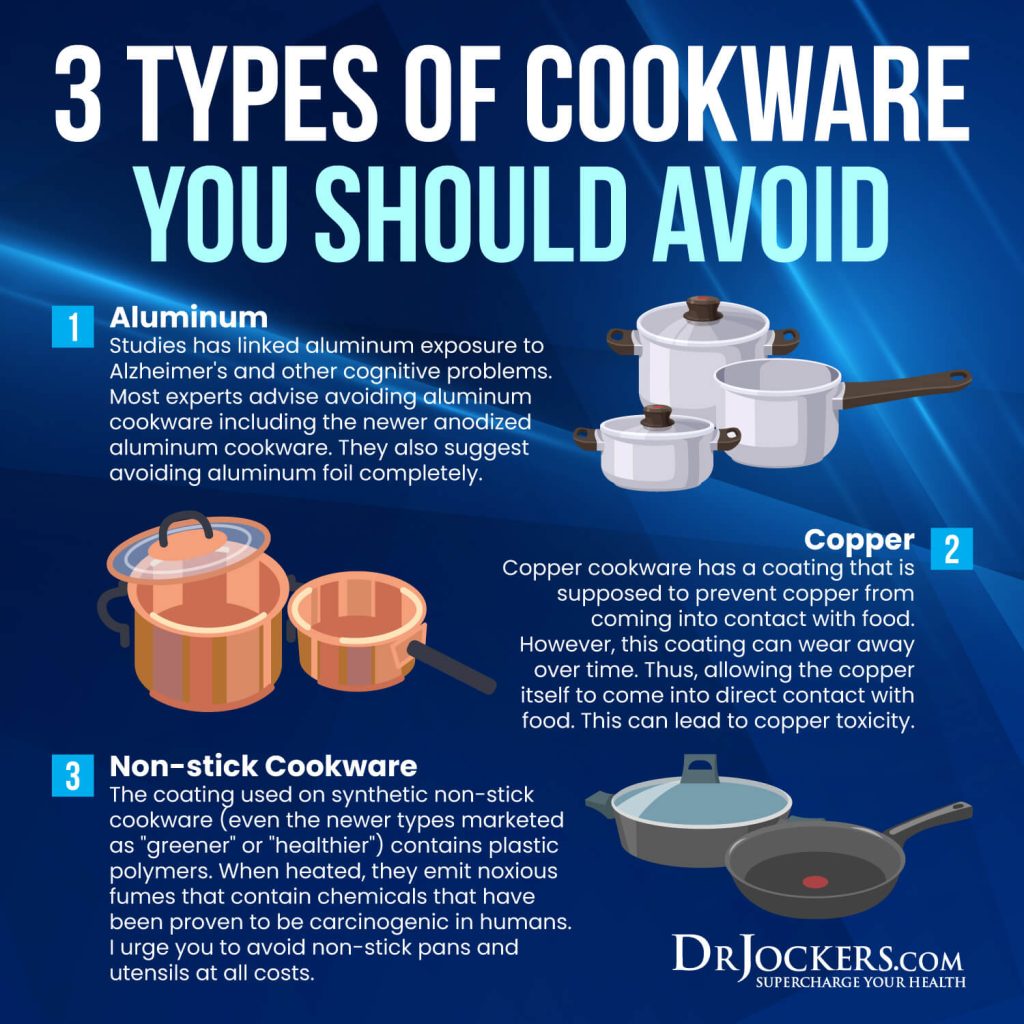
This image is property of drjockers.com.
Factors to Consider When Choosing Cookware
When selecting cookware, there are several factors that you should consider to ensure you make the best choice for your needs and preferences. These factors include:
Material safety
Opt for cookware made from non-toxic materials, such as ceramic, stainless steel, or glass, to ensure that harmful chemicals do not leach into your food. Avoid materials like Teflon or non-stick coatings that may contain harmful substances.
Durability
Consider the durability of the cookware to ensure you are investing in a long-lasting product. Materials like cast iron and stainless steel are known for their durability and ability to withstand high heat and heavy use.
Heat conductivity
Choose cookware that provides excellent heat conductivity to ensure even cooking. Materials like stainless steel and copper have excellent heat conductivity properties, allowing for optimal cooking results.
Maintenance and care
Consider the maintenance and care requirements of the cookware. Some materials, like cast iron, require regular seasoning and specific cleaning techniques to maintain their quality and prevent rusting.
Cost
While cost should not be the sole determining factor, it is essential to consider your budget when choosing cookware. Different materials and brands may vary in price, so it’s crucial to find a balance between quality and affordability.
Avoiding Non-Stick Cookware
Non-stick cookware, such as pans coated with Teflon, may offer convenience in the kitchen, but they also come with potential health risks. These cookware options typically contain chemicals like perfluorooctanoic acid (PFOA) and perfluorooctanesulfonic acid (PFOS), which are known to be harmful to human health. PFOA and PFOS have been linked to various health issues, including liver damage, thyroid problems, and even certain types of cancer.
To avoid these risks, it is advisable to opt for alternatives to non-stick cookware. Consider using ceramic, cast iron, stainless steel, or glass cookware, as mentioned earlier. These options are all non-toxic and do not release harmful chemicals when heated, ensuring safer and healthier cooking experiences.
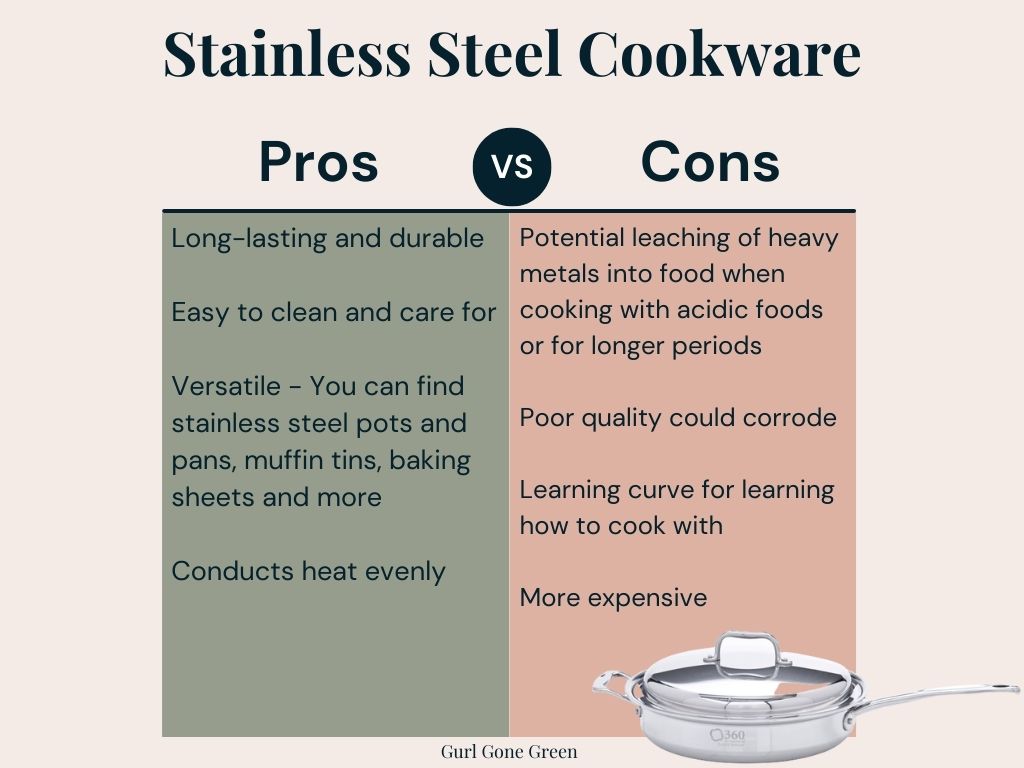
This image is property of gurlgonegreen.com.
Choosing Ceramic Cookware
Ceramic cookware is an excellent choice for those looking to transition to healthier alternatives. It offers numerous benefits that make it a popular option for health-conscious individuals. Some of these benefits include:
– Non-toxic: Ceramic cookware is made from natural materials and does not contain harmful chemicals like lead or cadmium. This ensures that no toxins will leach into your food during cooking.
– Easy to clean: Ceramic cookware is naturally non-stick, making it easy to clean with minimal effort. Most residues can be easily wiped off, reducing the need for excessive scrubbing or soaking.
– Even heat distribution: Ceramic cookware is known for its excellent heat distribution, ensuring that your food cooks evenly. This helps prevent hot spots and ensures that your dishes are cooked to perfection.
– Versatile: Ceramic cookware can be used in the oven, stovetop, and microwave, making it a versatile addition to your kitchen. You can use it for various cooking methods, including baking, frying, and simmering.
To ensure you choose the best ceramic cookware, look for options that have a non-toxic ceramic coating and are free from heavy metals. It is also important to follow the care instructions provided by the manufacturer to maintain the quality and longevity of the cookware.
Opting for Cast Iron Cookware
Cast iron cookware has stood the test of time and continues to be a popular choice for health-conscious individuals. It offers several advantages that make it an excellent option for your kitchen. These advantages include:
– Durability: Cast iron cookware is incredibly durable and can withstand high heat and heavy use. It is known to last for generations when properly cared for, making it a cost-effective choice in the long run.
– Even heat distribution: Cast iron retains heat exceptionally well, ensuring even cooking throughout your dishes. It also provides excellent heat retention, allowing your food to stay hot for more extended periods.
– Non-toxic: Cast iron is a natural material that does not release any harmful chemicals or toxins when heated. It is an excellent choice for those concerned about potential health risks associated with traditional non-stick cookware.
To properly care for your cast iron cookware, it is essential to season it regularly. Seasoning involves coating the cookware with oil and heating it to create a natural non-stick patina. This process helps prevent rusting and improves the cookware’s performance over time. Additionally, avoid using harsh detergents or scrubbing pads when cleaning cast iron to prevent damage to the seasoning.
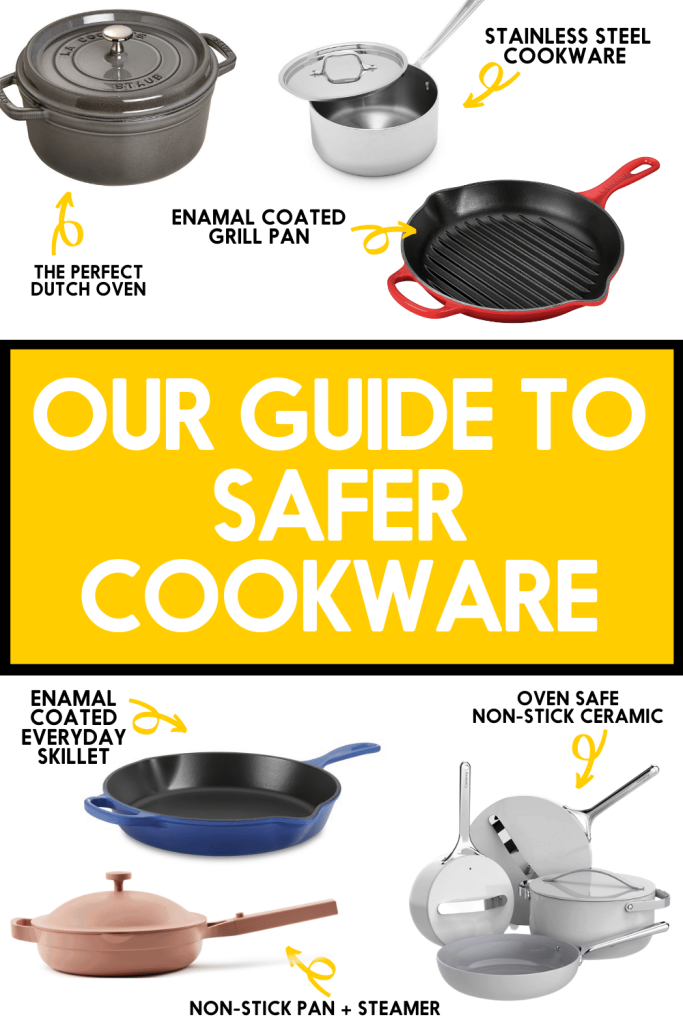
This image is property of lexiscleankitchen.com.
Considering Stainless Steel Cookware
Stainless steel cookware is a popular choice for many home cooks due to its numerous benefits. It offers a combination of durability, performance, and aesthetic appeal, making it a versatile option for your kitchen. Some benefits of stainless steel cookware include:
– Durability: Stainless steel is a highly durable material that can withstand heavy use without warping or scratching. It is resistant to corrosion and rust, ensuring that your cookware will last for many years.
– Heat conductivity: Stainless steel cookware provides excellent heat conductivity, allowing for even cooking results. It heats up quickly and maintains a consistent temperature throughout the cooking process.
– Non-toxic: High-quality stainless steel cookware is non-toxic and does not release harmful chemicals into your food. It is a safe option for everyday cooking and provides peace of mind when it comes to potential health risks.
To keep your stainless steel cookware in top condition, it is important to follow the manufacturer’s cleaning instructions. Stainless steel can be prone to discoloration or staining if not properly cared for. Avoid using abrasive cleaning tools and harsh chemicals that can damage the surface of the cookware.
Using Glass Cookware for Health
Glass cookware is another excellent option for health-conscious individuals. It offers several benefits that make it a popular choice for many home cooks. These benefits include:
– Non-toxic: Glass cookware is made from natural materials and does not contain harmful chemicals or toxins. It is a safe option for cooking and does not leach any substances into your food.
– Versatility: Glass cookware can be used in the oven, microwave, stovetop, and even freezer. It is a versatile option that allows you to prepare, cook, and store your dishes in the same container.
– Transparency: Glass cookware is transparent, allowing you to monitor your food while it cooks. This is especially useful when baking or roasting, as you can easily check the browning and doneness of your dishes.
When choosing glass cookware, opt for heat-resistant glass that can withstand high temperatures without breaking or shattering. Additionally, handle glass cookware with care to prevent accidents or breakages, as glass can be fragile.
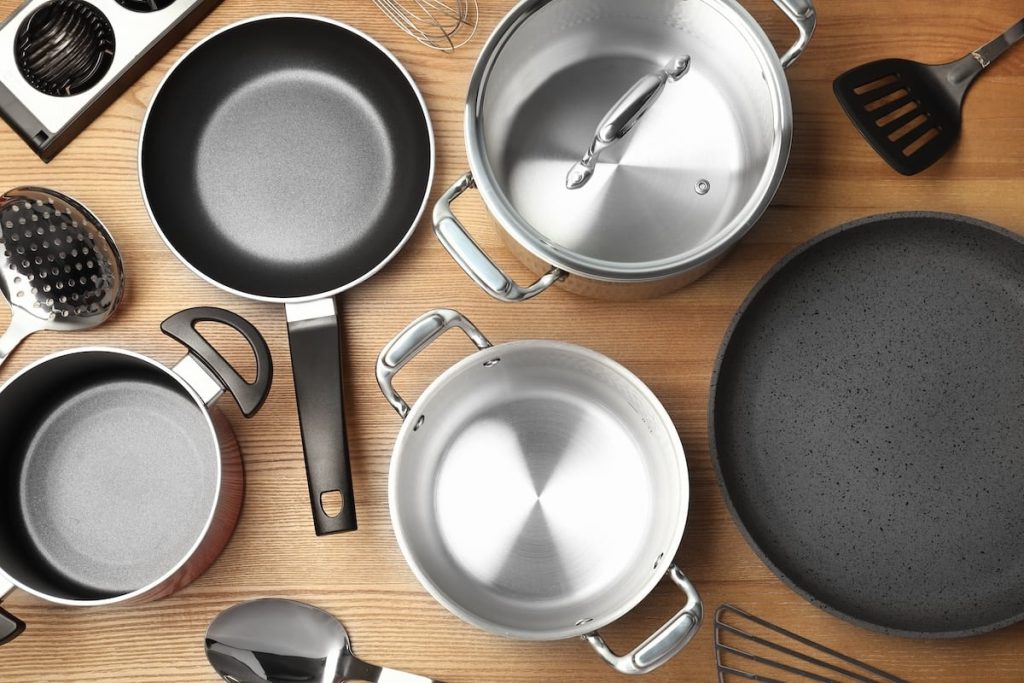
This image is property of www.cleaneatingkitchen.com.
Exploring Titanium Cookware
Titanium cookware is a relatively new but promising addition to the market. It offers several advantages that make it an attractive option for health-conscious individuals. Some advantages of titanium cookware include:
– Lightweight: Titanium cookware is incredibly lightweight, making it easy to handle and maneuver in the kitchen. This is especially beneficial for individuals who struggle with heavy cookware or have limited mobility.
– Durability: Titanium is a highly durable material that can withstand heavy use and high temperatures without warping or scratching. It is resistant to corrosion and wear, ensuring that your cookware will last for years to come.
– Non-toxic: High-quality titanium cookware is non-toxic and does not release any harmful chemicals or toxins when heated. It is a safe option for cooking and provides peace of mind when it comes to potential health risks.
To care for your titanium cookware, avoid using metal utensils or abrasive cleaning tools that can scratch the surface. It is best to hand wash titanium cookware to prolong its lifespan and maintain its quality.
Transitioning to Healthier Cookware
Transitioning to healthier cookware choices can be a gradual process that allows you to make the necessary changes over time. Here are some tips to help you make a smooth transition:
– Gradual transition: Instead of replacing all your cookware at once, start by incorporating one or two healthier options into your kitchen. This allows you to familiarize yourself with the new cookware and adjust your cooking techniques accordingly.
– Replacing pieces over time: As you continue to transition to healthier cookware, replace your traditional cookware pieces with healthier alternatives one by one. This approach allows you to gradually build a collection of safe and effective cookware without feeling overwhelmed or financially burdened.
– Donating or recycling old cookware: Instead of discarding your old cookware, consider donating it to a local charity or recycling it responsibly. This ensures that your old cookware doesn’t end up in landfills and can benefit someone else in need.
By following these tips and gradually introducing healthier cookware options into your kitchen, you can make a positive change towards safer and more sustainable cooking practices.
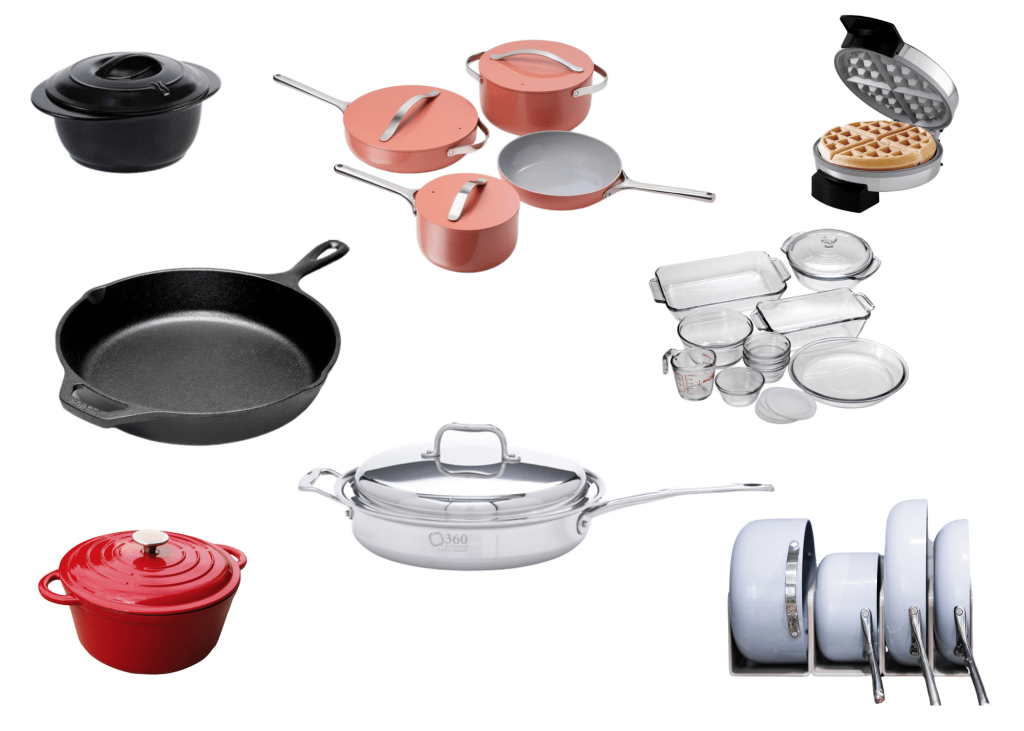
This image is property of gurlgonegreen.com.
